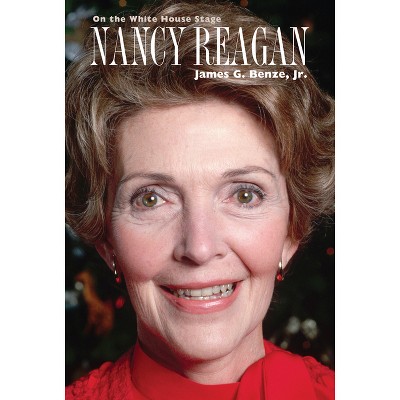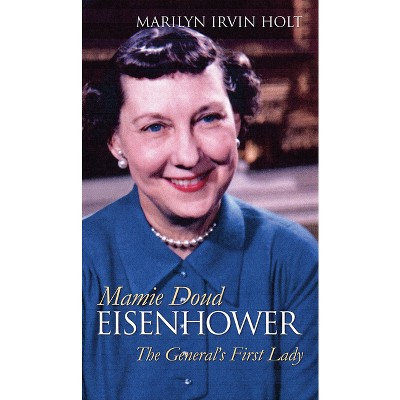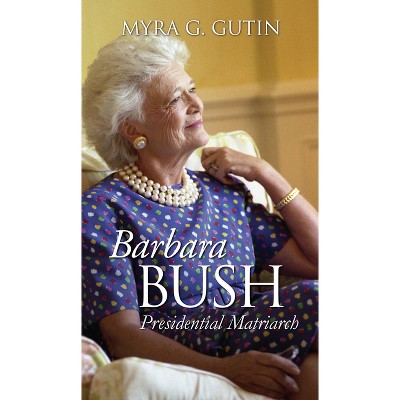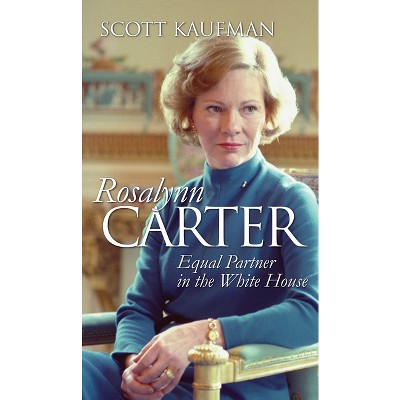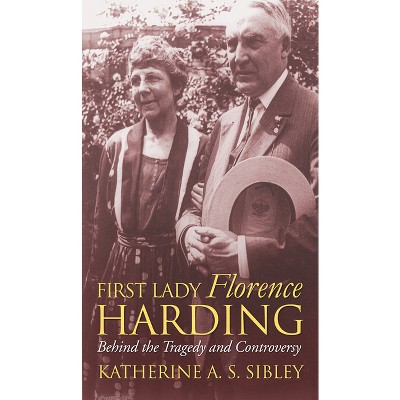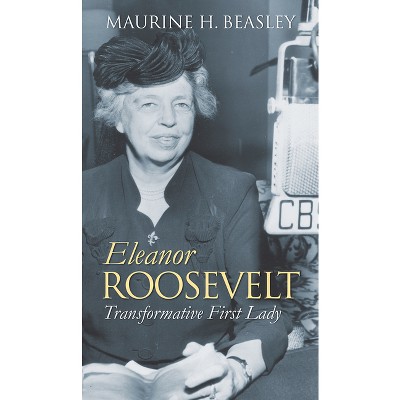Sponsored

Lou Henry Hoover - (Modern First Ladies) by Nancy Beck Young (Paperback)
In Stock
Sponsored
About this item
Highlights
- Although overshadowed by her higher-profile successors, Lou Henry Hoover was in many ways the nation's first truly modern First Lady.
- Author(s): Nancy Beck Young
- 252 Pages
- Biography + Autobiography, Women
- Series Name: Modern First Ladies
Description
About the Book
This first thoroughly researched appraisal of Hoover's tenure as first lady (1929-1933) argues that she was the first modern presidential wife because of her use of radio, adoption of social causes, and public activism outside White House traditions.
Book Synopsis
Although overshadowed by her higher-profile successors, Lou Henry Hoover was in many ways the nation's first truly modern First Lady. She was the first to speak on the radio and give regular interviews. She was the first to be a public political persona in her own right. And, although the White House press corps saw in her "old-fashioned wifehood," she very much foreshadowed the "new woman" of the era.
Nancy Beck Young presents the first thoroughly documented study of Lou Henry Hoover's White House years, 1929-1933, showing that, far from a passive prelude to Eleanor Roosevelt, she was a true innovator. Young draws on the extensive collection of Lou Hoover's personal papers to show that she was not only an important First Lady but also a key transitional figure between nineteenth- and twentieth-century views on womanhood.
Lou Hoover was a multifaceted woman: a college graduate, a lover of the outdoors, a supporter of Girl Scouting, and a person engaged in social activism who endorsed political involvement for women and created a program to fight the Depression. Young traces Hoover's many philanthropic efforts both before and during the Hoover presidency--contrasting them with those of her husband--and places her public activities in the larger context of contemporary women's activism. And she shows that, unlike her predecessors, Hoover did more than entertain: she revolutionized the office of First Lady.
Yet as Young reveals, Hoover was constrained as First Lady by her inability to achieve the same results that she had previously accomplished in her very public career for the volunteer community. As diligently as she worked to combat the hardship of the Depression for average Americans by mobilizing private relief efforts, her efforts ultimately had little effect.
Although her celebrity has paled in the shadow of her husband's negative association with the Great Depression, Lou Hoover's story reveals a dynamic woman who used her activism to refashion the office of First Lady into a modern institution reflecting changes in the ways American women lived their lives. Young's study of Hoover's White House years shows that her legacy of innovation made a lasting mark on the office and those who followed.
Review Quotes
"A detailed and thoughtful biography of Lou Henry Hoover's White House years from 1929 to 1933."--Annals of Iowa
"Adds significantly to our understanding of the office of first lady, women's political activism, and the contested and changing views of womanhood in the early twentieth century. . . . [This book] importantly places Hoover back in her rightful place."--Journal of Illinois History
"Young's work combines meticulous research with good analysis to create a vivid portrait of a sympathetic, interesting, and unfairly overlooked pioneer among the high-achieving women of our time."--The Weekly Standard
"This illuminating work brings into focus one of the forgotten first ladies of the 20th century. . . . For those of us looking to the early years of the 20th century for the root causes of more immediate events, this is a book that helps us to understand the forces, issues, and people who lived and labored then."--Bloomsbury Review
"Lou Henry Hoover was a paradoxical public figure: a self-effacing activist, an unconventional conservative, an innovator wrongly remembered as a standpatter. Young's perceptive and illuminating study rescues this enigmatic and accomplished First Lady from the shadows of undeserved obscurity."--George H. Nash, author of Life of Herbert Hoover
"Young brings Hoover out of the shadow of her successor and gives her the credit she deserves for being an activist, a progressive, and a national leader."--Timothy Walch, director, Hoover Presidential Library






